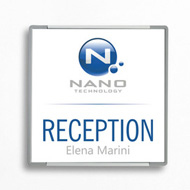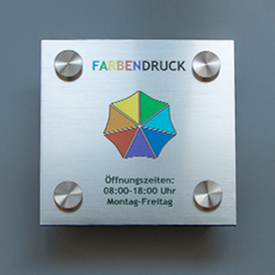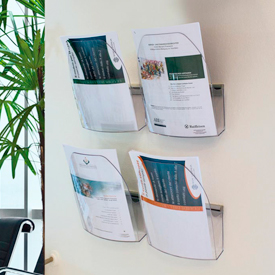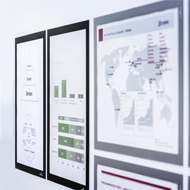Mastering internal communication: digital paths to corporate success
Friday, November 1, 2024
 Internal communication plays a central role in the success of a company. In this article, the author could show how companies can optimize their internal communication using digital tools and strategies.
Internal communication plays a central role in the success of a company. In this article, the author could show how companies can optimize their internal communication using digital tools and strategies.The times when internal communication was viewed as a subordinate element of corporate management are long gone. In today's era dominated by information and technology, it occupies a central position. Efficient, targeted communication within the company is no longer just a wish, but an indispensable necessity for the success and sustainable growth of any company. Digital transformation has revolutionized traditional communication channels and now offers possibilities that would have been unthinkable just a few years ago. This article provides a comprehensive insight into how companies can optimize their internal communications by implementing digital tools and applying thoughtful strategies to gain a significant competitive advantage.
The importance of internal communication does not only arise from the need to disseminate information effectively. Rather, it is the foundation on which the corporate culture is built and thrives. A transparent, open communication culture promotes employee engagement and motivation, strengthens a sense of belonging and supports employees in identifying with the company's goals and values. At a time when competition for talent is more intense than ever, excellent internal communication can become a critical factor in attracting and retaining top talent.
But how can companies improve their internal communication in practice? What digital tools are available and how can they be used effectively? What strategic considerations should companies make to achieve their communication goals? This article will answer these questions by providing practical tips and tricks, discussing proven strategies, and highlighting real-world success stories. The aim is to support companies in making their internal communication a powerful instrument for corporate success.
Fundamentals of internal communication
At the core of corporate dynamics is internal communication, a strategic pillar that goes far beyond the mere transmission of information. It includes the entirety of all processes through which information, ideas and values are exchanged within a company. The aim is to promote a common understanding, increase employee engagement and motivation and establish a strong, resilient corporate culture.✔
Definition and goals: Internal Communication refers to the exchange of information and interaction between the different levels and departments of a company. It serves to inform employees about important developments, goals and strategies and to ensure that everyone is pulling in the same direction. The overall goals include promoting transparency, improving morale, and creating a sense of belonging and appreciation among employees.✔
Challenges: Despite its importance, internal communication often comes up against problems in practice on obstacles. Information overload, unclear messages, silo mentality between departments and a culture of mistrust can significantly impact the effectiveness of internal communication. These challenges can lead to misunderstandings, reduce employee engagement and ultimately weaken company performance.✔
Impact on corporate culture: Internal communication is a reflection of the corporate culture. An open, transparent communication culture promotes trust and collaboration, while a closed, hierarchical culture can lead to alienation and frustration. The way information is shared, discussions are held and decisions are communicated shapes the work environment and directly influences employee well-being and productivity.Given these basics, it becomes clear that optimizing internal communication requires careful planning and strategic considerations. Digital tools offer countless opportunities to make communication more efficient, inclusive and effective. In the next section we will therefore look at various digital tools for optimizing internal communication and examine their potential for companies.
Digital tools to optimize internal communication
In a world where digital technologies form the backbone of modern companies, digital tools play a crucial role in optimizing internal communication. These tools not only facilitate information sharing and promote collaboration, but also transform company culture by creating an atmosphere of openness and engagement.1. Intranet platforms
Modern Intranet solutions are much more than just digital bulletin boards. They act as central platforms for collaboration, knowledge sharing and social interaction within the company. With functions such as personalized news feeds, employee directories and integrated social networks, they support a transparent and inclusive communication culture.2. Messaging apps and collaboration tools
Tools like Slack, Microsoft Teams and WhatsApp have revolutionized the way teams communicate and collaborate. They enable real-time communication, file sharing and provide channels for specific projects or topics, increasing efficiency and responsiveness within the team. Project management software: Platforms like Asana, Trello and Monday.com help teams organize their projects and tasks. By providing a clear overview of the status of projects and tasks, these tools promote targeted communication and improve transparency and accountability.3. Feedback and survey tools
Digital survey and feedback tools, such as SurveyMonkey or Google Forms, are essential for measuring employee satisfaction and obtaining feedback. They allow companies to have a continuous dialogue and hear each individual's voice, which is crucial for the constant improvement of internal communication strategies. Comparison of functions and possible uses: Choosing the right tool depends on the specific needs and goals of a company.Conclusion
The implementation of these digital tools requires strategic planning and adaptation to the specific requirements of the company. While intranet platforms are ideal for disseminating company news and promoting company culture, messaging apps and collaboration tools are better suited for daily communication and project work. Project management software is particularly valuable for teams working on complex projects, and feedback tools are crucial for collecting and implementing employee feedback.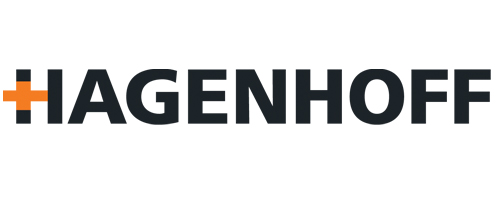
To the author
Hagenhoff advertising agencyHagenhoff is an advertising agency based in Osnabrück that has been supporting companies with tailor-made solutions since 1990. Their mission is to bring visions to life and strengthen their customers' market position. She offers clear advice, strong creation and a success-oriented approach.
Hagenhoff: The agency for creative brilliance and strategic clarity.
